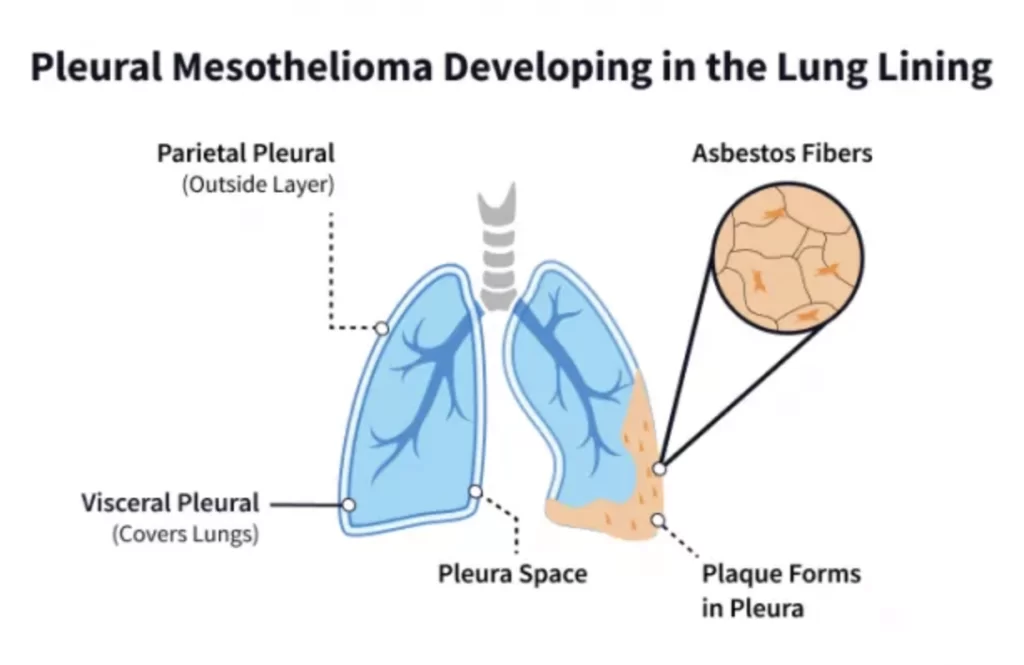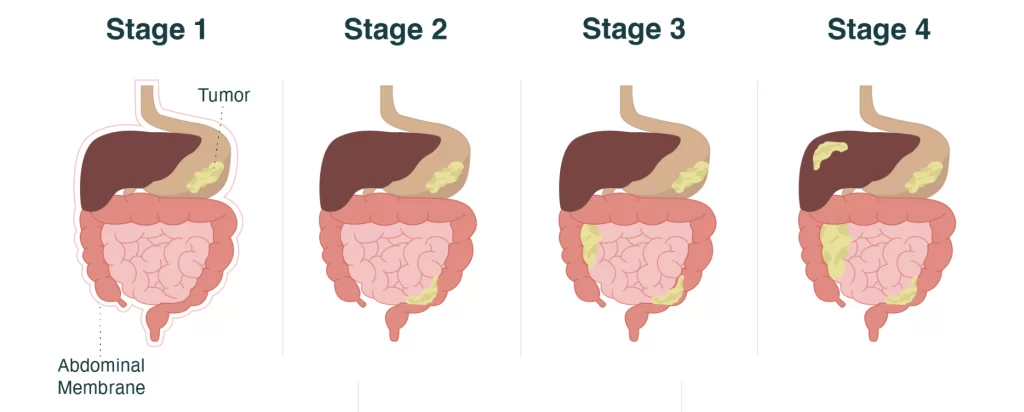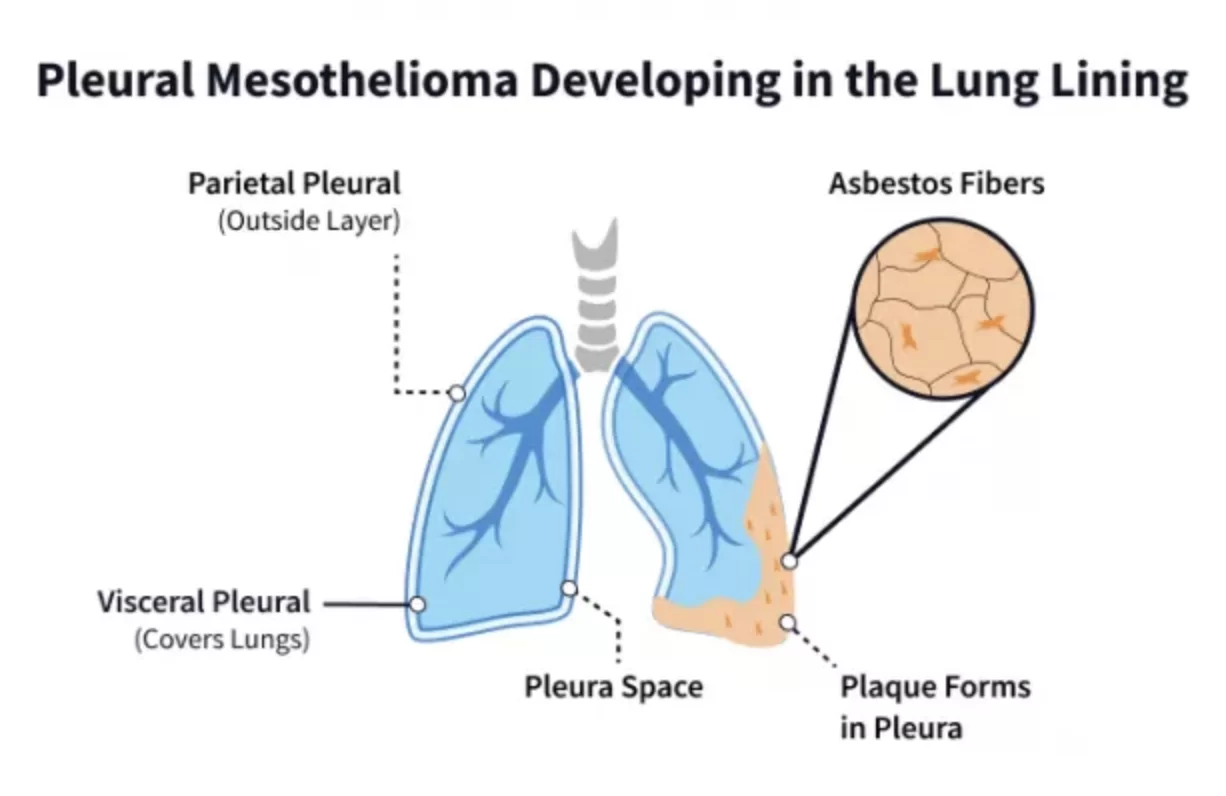Mesothelioma is a rare and aggressive form of cancer that we see in the mesothelium, which is a protective lining that covers many internal organs in the body such as the lungs. The primary cause of mesothelioma is exposure to asbestos, a naturally occurring mineral widely used in construction, shipbuilding, and manufacturing industries until its harmful effects were discovered. In this blog post, we will delve into the causes, symptoms, and treatment options for mesothelioma to raise awareness about this devastating disease.

Causes of Mesothelioma
Asbestos exposure is the leading cause of mesothelioma. When asbestos fibers are disturbed or damaged, they release tiny particles into the air and can be inhaled. Over time, these fibers accumulate in the mesothelium, leading to inflammation and the development of cancerous cells.
People who worked in asbestos-related industries, such as miners, construction workers, and military personnel, are at the highest risk of developing mesothelioma. Additionally, secondary exposure can occur when family members inadvertently bring home asbestos fibers on their clothing or through other means.
Symptoms of Mesothelioma
Symptoms of mesothelioma often take decades to manifest, making early diagnosis challenging. The signs and symptoms vary depending on the type of mesothelioma and the affected area, but common symptoms include:
- Persistent dry cough
- Shortness of breath
- Chest or abdominal pain
- Fatigue and unexplained weight loss
- Difficulty swallowing
- Swelling and lumps under the skin on the chest or abdomen
It is crucial to seek medical attention promptly if you have a history of asbestos exposure or experience any of these symptoms, especially if they persist or worsen.
Types of Mesothelioma
Mesothelioma can occur in different parts of the body, with the most common types being:
Pleural Mesothelioma: This form affects the lining of the lungs (pleura) and is the most prevalent type, accounting for about 80% of all cases.
Peritoneal Mesothelioma: Developing in the lining of the abdomen (peritoneum), this type accounts for approximately 20% of mesothelioma cases.

Pericardial Mesothelioma: The rarest form, pericardial mesothelioma affects the lining around the heart (pericardium).
Testicular Mesothelioma: The rarest form of all, this type affects the tunica vaginalis, the lining surrounding the testicles.
Treatment Options for Mesothelioma
Due to its aggressive nature and late-stage diagnosis, treating mesothelioma can be challenging. The appropriate treatment plan depends on factors such as the stage of the disease, the type of mesothelioma, and the patient’s overall health. Some common treatment options include:
Surgery
Surgical interventions aim to remove cancerous tissue and, if possible, the affected organs. These procedures include pleurectomy/decortication (P/D) for pleural mesothelioma and cytoreductive surgery for peritoneal mesothelioma.
Chemotherapy
Chemotherapy involves the use of powerful drugs to kill cancer cells or stop their growth. It can be administered before or after surgery or as a standalone treatment for advanced cases.
Radiation Therapy
Radiation therapy uses high-energy rays to target and kill cancer cells. It may be used alongside surgery or chemotherapy to improve the effectiveness of treatment. However it’s known that when mesothelioma is detected in the later stages, these treatments unfortunately don’t work out.
Immunotherapy
Immunotherapy drugs help boost the body’s immune system to recognize and attack cancer cells more effectively.
Palliative Care
Mesothelioma treatments are often focused on palliative care, which aims to alleviate symptoms, reduce pain, and improve the patient’s quality of life.
Clinical trials and emerging treatments are constantly being explored to find more effective ways to combat mesothelioma and improve patient outcomes.
Mesothelioma is a devastating disease that requires urgent attention and increased awareness. Understanding the causes, symptoms, and treatment options is crucial for early detection and better management of the disease.
If you suspect asbestos exposure or experience symptoms associated with mesothelioma, consult a healthcare professional immediately. By promoting awareness and supporting ongoing research, we can hope for better outcomes for those affected by this aggressive cancer.

Medical oncologist Dr. Anne Wolf is director of the Mesothelioma Program and chair of the Clinical Research Committee at the University of Texas MD Anderson Cancer Center in Houston.


Rattling wonderful info can be found on web blog.Raise blog range